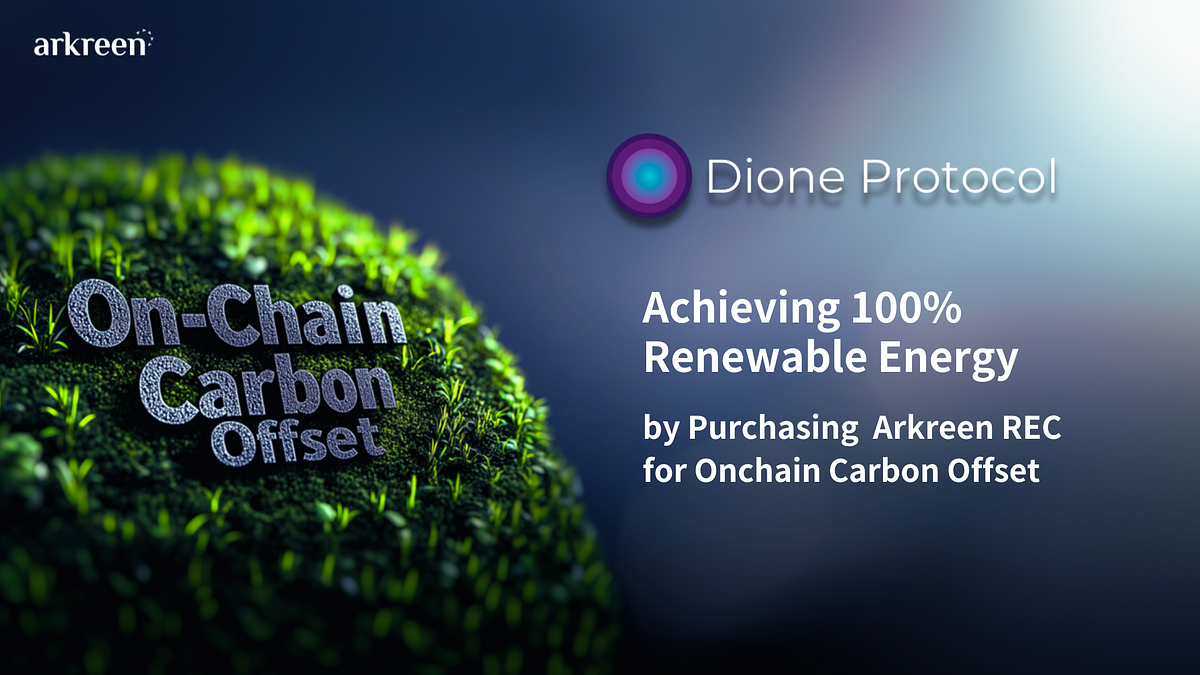Dione Partners with Arkreen to Achieve 100% Renewable Energy

Dione has made a significant advancement in its sustainability initiatives by acquiring tokenized Renewable Energy Certificates (RECs) from Arkreen for the year 2025. This strategic move ensures that Dione achieves on-chain carbon offset for its ecosystem, ultimately reaching 100% renewable energy usage. The partnership with Arkreen underscores Dione’s commitment to transparency and environmental responsibility, allowing the company to offset its brown electricity consumption associated with blockchain transactions through the utilization of Arkreen’s tokenized environmental asset, known as ART tokens.
The cornerstone of this collaboration is the Arkreen Renewable Energy Certificate (AREC), which plays a crucial role in reducing the carbon footprint of the Dione ecosystem and its partners. By implementing Arkreen’s advanced REC protocol, Dione is not only laying the groundwork for sustainable growth but also enhancing its decentralized infrastructure to support renewable energy technologies. The success of Arkreen’s AREC protocol, which has issued over 129,520 tokenized RECs representing 129 GWh of green energy, highlights the effectiveness of on-chain solutions in tackling environmental challenges at scale, including contributions from residential solar panels and traditional RECs bridged via I-REC.
With Dione’s involvement, this partnership marks another significant milestone in the realm of sustainable technology. By adopting this proven solution, Dione reinforces its position as a leader in blockchain innovation with a strong emphasis on sustainability. This collaboration serves as a rallying call to the Web3 community, inviting all stakeholders to participate in the renewable energy movement and contribute to building a decentralized, carbon-neutral future. Together, Dione and Arkreen are shaping a more sustainable and innovative blockchain ecosystem, demonstrating the potential of collaborative efforts in addressing global environmental issues.
Related News





